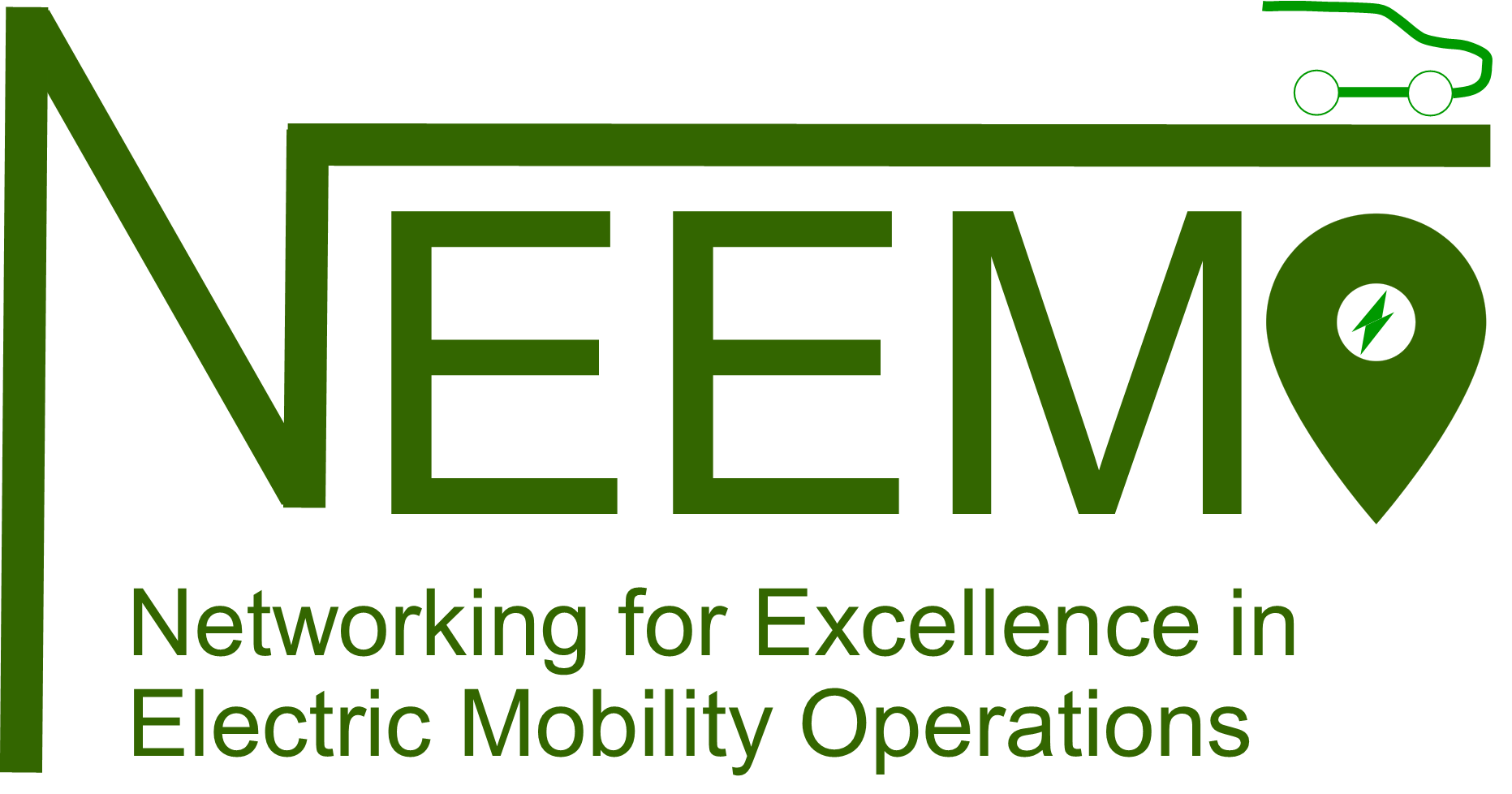The Third NEEMO School organised under the aegis of the NEEMO project will be held in Malta back-to-back with MEDPOWER2022, between the 9th to 12th November 2022. The School will feature 14 keynote lectures including a day session with the EIT Urban Mobility Hub Training Shifting to Electric Vehicles: Training for Corporates as well as trial runs by various brands. Travel support is available for active participation that includes submission of a full paper and presentation in MEDPOWER2022 or roles within 7-12 Nov 2022 week.
For registrations click here.
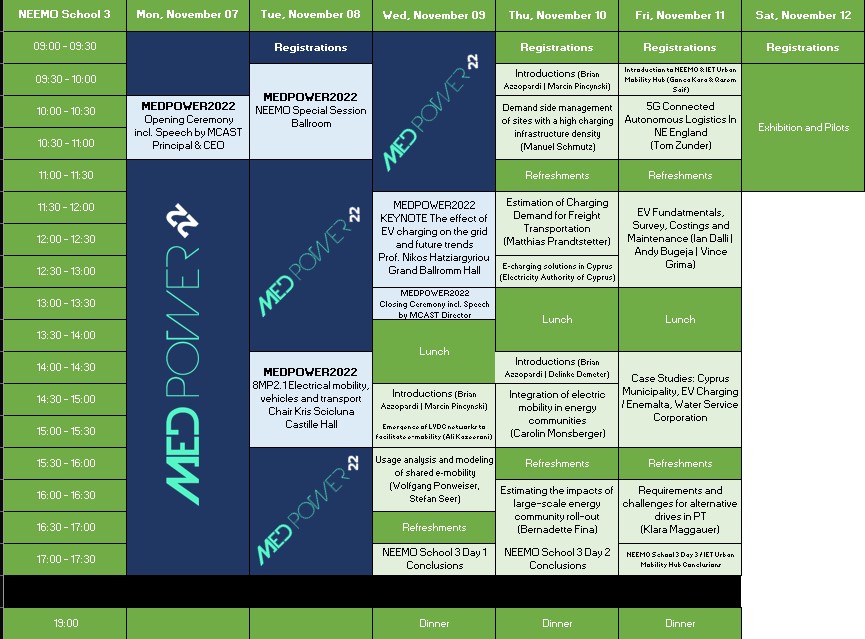

Dr Ali Kazeeroni
Dr. Ali Kazerooni is a chartered engineer with over 20 years of experience in R&D projects, power system studies and system design with distribution network operators (DNOs). He is currently supporting UK DNOs to manage and deliver their complex innovation projects. Ali has been focusing on developments and applications of power electronic solutions for grid applications in the last 10 years. That includes the concept development and initial feasibility studies to implementation and live demonstrations. He received his PhD from University of Manchester and has been author and co-author of several technical papers presented in international conferences and peer-reviewed journals.
Emergence of LVDC networks to facilitate e-mobility
Low Voltage DC (LVDC) networks are one of the emerging technologies that can reduce the cost of infrastructure required for EV charges. Deploying LVDC networks can eliminate the unnecessary AC/DC conversions at rapid/ultra rapid DC EV chargers making them less expensive, lighter and more compact. LVDC networks also can offer a better power transfer capacity over distance which consequently reduces network infrastructure costs. Nonetheless, there are technical and safety challenges to roll out this technology and make LVDC a business as usual solution for network operators. In this talk, the benefits and challenges of LVDC will be discussed to inspire academics and industrial bodies to embark on new academic research and products.
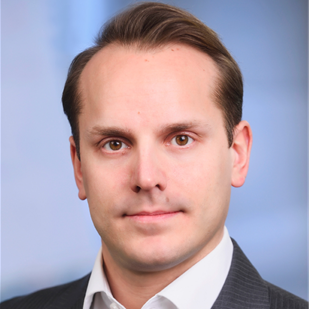
Dr Stefan Seer
Stefan Seer is Senior Scientist at the AIT Austrian Institute of Technology in Vienna, where he leads the “Integrated Digital Urban Planning” research group. His work focuses on how technology can be employed to improve our public space and multimodal mobility, and to enhance the resilience of urban systems. Stefan has over 15 years of experience in managing complex projects with a diverse set of internal and external stakeholders from academia, the public and private-sector across continents. He has a Ph.D. in Computer Science from Vienna University of Technology and is also Research Affiliate with the SENSEable City Lab at the Massachusetts Institute of Technology (MIT).
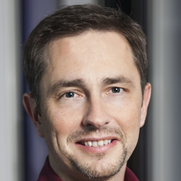
Dr Wolfgang Ponweiser
Dr Wolfgang Ponweiser graduated in Electrical Engineering and received his PhD from the TU-Vienna. Till 2010, Wolfgang worked at the Automation and Control Institute of the TU-Vienna in the field of mobile robotics and computer vision and published more than 30 scientific papers. From 2009 till 2017 he taught at the University of Applied Sciences Technikum Wien in the field of Mobile Robotics. In 2010, Wolfgang joins the AIT Austrian Institute of Technology, where he acquires and manages research projects (SHOW, Drive2theFuture, Levitate) in the domains of ITS (Intelligent Transportation Systems), CCAM (Connected, Cooperative and Automated Mobility) and travel behaviour. He is active in ECTRI, EARPA, ERTRAC and Delegate of the R&I Institutes at the European CCAM partnership.
GPS-based Analysis of Shared E-Mobility Services
Car sharing aims to reduce private car ownership and to promote multimodal transport, so that active and public transport gain importance as part of the transport system and car journeys are only made when there is a specific need for this mode of transport. This study analyzes GPS tracks of car sharing trips in a high-density urban setting to gain insights into the sustainability and efficiency of e-car sharing services. The analyses show that sporadic users in particular fulfill the sustainability purpose of the car-sharing service, while the behavior of frequent users seems to include additional trips induced by the service or trips that could easily be covered by more environmentally friendly transport modes. Applying the method to a variety of differently designed car-sharing services promises to enable further insights.

Ms Klara MAGGAUER
Klara Maggauer has been a Junior Research Engineer in the Competence Unit Integrated Energy Systems at the AIT Center for Energy since 2022 and works on national and international projects in the field of flexibility of integrated energy systems. Her main focus are economic questions such as cost-benefit analyses, techno-economic evaluations, and business model development, as well as risk assessments in the context of renewable energy technologies, energy communities, alternative forms of drive in public transport and in the field of local and district heating. Klara Maggauer holds a master’s degree in physics from the University of Vienna, which she completed in January 2022.
Requirements and challenges for the energy industry concerning alternative drives in public transport
One of the challenges that come with the growing efforts that are made towards making the transport sector more sustainable is the decarbonization of vehicles, for which alternatives to fossil fuel drives are needed. In a workshop, we build on results of a study assessing the use of alternative drives for public busses in a region in eastern Austria. The distances and topology covered by the busses in this area are comparable to those in Malta. Based on the study’s results, the potential of using battery-electric and hydrogen drives for busses is assessed. More specifically, the technological and economic implications, as well as the energy demand that come with their implementation are investigated. Furthermore, the vehicle demand and energy consumption for the deployment of each of these alternative drives as well as their advantages and disadvantages are considered. Finally, strategies for the generation of the energy required to realize the aforementioned alternative drives through renewables (photovoltaics and wind power) are covered.

Mr Manuel Schmutz
Manuel Schmutz graduated from Fachhochschule Technikum Wien as MSc in Engineering in 2017. Specialized in distributed load management for charging infrastructure, he joined ENIO in 2014 as software developer. ENIO is a leading technology company in the field of control and management of charging infrastructure for electric vehicles.
Demand side management of sites with a high charging infrastructure density
The lecture focuses on intelligent charging management at sites with a high charging infrastructure density. The use of intelligent charging management not only guarantees maximum flexibility and enables the use of decentralised renewable energy, but it also offers the possibility for a demand-oriented and power network-friendly as well as price-efficient energy consumption.
By means of an elementary example, the lecture will introduce possible involved actors as well as different architectures of an intelligent managed charging infrastructure. In addition, different strategies of Direct Load Control (DLC) and load shifting techniques in common use cases will be discussed to meet the requirements of the demand side as efficiently as possible, but to simultaneously comply with restrictions such as the maximum total power of all active charging processes, avoidance of demand peaks or phase imbalances.

Dr Bernadette Fina
After completing her master’s degree in Energy and Automation Engineering at the Technische Universität Wien with honours, Bernadette Fina joined the AIT Austrian Institute of Technology as a PhD candidate in October 2017. Her PhD thesis focused on the economic evaluation and optimization of energy communities, within individual buildings and across building boundaries. After a research visit at UNSW in Sydney, she completed her PhD in Electrical Engineering in July 2020 with honours. Bernadette Fina now works as a Scientist at the AIT Austrian Institute of Technology in the competence unit Integrated Energy Systems. Her field of expertise lies in the simulation and optimization of energy communities, profitability analysis and the legal and regulatory background of energy communities in Europe.
Estimating the impacts of large-scale energy community roll-out
The Renewable Energy Directive and the Electricity Market Directive, both directives under the Clean Energy for All Europeans Package of 2019, hold, among others, guidelines for renewable energy communities and citizen energy communities. The status of the transposition process of EU energy community regulation into national laws differs from country to country. In this case, Austria is a pioneer, since legislation for renewable energy communities and citizen energy communities has been enforced since mid-2021. However, in other EU countries, the legislative basis to establish energy communities is also expected to be laid timely. Since energy communities are novel concepts in their infancy, there is little data available concerning their potential impact. While individual energy communities might not have significant impacts, a large-scale roll-out of these novel concepts might very well have. To be prepared, it is important to timely estimate the potential impacts of a large-scale roll-out of energy communities. Therefore, a nine-step framework can be used to estimate the impact of energy community roll-out on a large scale. This framework comprises topics of different building types, theoretical and usable rooftop areas, installable photovoltaic (PV) capacities, shares of buildings equipped with PV, determining suitable model energy communities and scaling up results of individual communities to large-scale. Besides the theoretical background of the framework, it is also demonstrated in the example of Austria. Thereby, the impacts of energy community roll-out on electricity suppliers, grid operators and third-party energy service providers are economically assessed.

Ms Carolin Monsberger
Carolin Monsberger joined the AIT Austrian Institute of Technology, Center for Energy, in July 2020. Within the Competence Unit ‘Integrated Energy Systems’, she works in the field of simulation/optimization of topics concerning enery economics, the development of business models and also investigates the legal framework of electricity markets, direct marketing options and energy communities. Furthermore, she deals with the topics of grid connection and support for renewable power generation plants. After her bachelor studies in Urban Renewable Energy Technologies at the University of Applied Sciences Technikum Wien, she completed her master studies in Energy and Automation Technology (in the field of energy economics) at the TU Wien with distinction.
Integration of electric mobility in energy communities
The Clean Energy for all Europeans Package (CEP) 2019 places end consumers at the center of the energy transition. Energy communities are to be made possible in all EU countries. In these, energy can be generated and consumed by members and traded/shared between members, and electricity for e-mobility can also be shared. Both renewable energy communities (defined at the EU level in the Renewable Energy Directive, RED) and citizen energy communities (defined at EU level in the Electricity Market Directive, EMD) are to be established in the EU.
Austria, as one of the pioneers in energy communities, has already created the legal basis for this in July 2021 through the Renewable Energy Expansion Act (EAG). Renewable energy communities, which may extend to a maximum of the medium-voltage grid of the same grid operator, are subject to reduced grid tariffs for the renewable electricity shared within the community. Citizen energy communities, on the other hand, do not experience any grid tariff reductions according to Austrian law but may extend throughout Austria and are not subject to any restrictions regarding the origin of the shared electricity.
Due to the increased profitability through grid tariff reductions, the elimination of the electricity tax, and the renewable energy subsidy for renewable energy communities, this type of energy community is examined regarding its cost-optimal technology mix. A special focus is on the optimal integration of electric mobility in energy communities.

Dr Tom Zunder
Tom Zunder is a knowledgeable academic and a skilled commercial manager, who for 15 years managed purchasing, production control, distribution and overall supply chain, in manufacturing industry. For the last 20 years Tom has pursued an academic career and is currently a Principal Research Associate, managing the Freight and Logistics research group, deliverables and dissemination in EU research projects, and pursuing academic and applied research, at Newcastle University. The proposals developed, coordinated, written, proposed, negotiated and implemented total around £4.9million to Newcastle University and 15 times that amount to all project partners.
5G Connected Autonomous Logistics In NE England
Advancements in Connected Autonomous Logistics (CAL), pioneered in the North East of England, present a real opportunity to innovate and future proof the logistics sector – improving efficiency, lowering costs, and creating safer and more flexible jobs for thousands of workers in the sector. Connected and Automated Logistics delivers benefits to operational efficiency, safety, the environment and the economy and can be regarded as fundamental to the future of logistics (factory of the future and intelligent supply chain, last mile logistics). Connected Autonomous Logistics will:
- Increase resilience in supply chains – The movement of goods is not only more efficient it is also more resilient providing components on demand without the need for as many human interactions. It will improve flexibility and sustainability; it will enhance risk management and response to future crisis
- Improve competitiveness – UK products are manufactured at higher volumes and lower unit costs making the Britain more productive and opening new export opportunities. It will improve production planning, scenario modelling and traceability across the supply chain.
- Attract investment – Increased foreign direct investment into the UK due to both perceived technical excellences bringing high value R&D jobs but also perceived excellence in manufacturing efficiency bringing a new wave of industrialisation.
- Advance net zero for heavy goods vehicles – Automating “touch free” logistics, especially over short distances, could significantly reduce emissions though opening opportunities for early electrification of heavy vehicles which could be charged more frequently during drop offs and pick-ups.
From desktop study, interview and workshops we have identified that the UK and the North East of England have various current and future key needs in the field of CAL. The North East, building on the 5G CAL project has a track record of researching, developing and demonstrating CAV and CAL trials and has an emergent CAL supply chain. This is supported by technological knowledge, economic plans and political will. This session will report on how academia, industry and government can foster development of that expertise and a commercial and industrial cluster to full scale manufacturing and deployment

Mr Andy Bugeja
Mr. Andy Bugeja has been lecturing at the Malta College of Art, Science, and Technology for the past 21 years in the fields of electrical and electronic engineering, programmable logic controllers, automation and control engineering, and electric vehicles (EV). He earned a degree in electronics and control engineering and is currently conducting research on six degrees of freedom pose estimation using computer vision to complete his engineering master’s degree. He has been operating a fully electric and a hybrid vehicle for the past decade and is an enthusiast for EVs and autonomous driving technology.
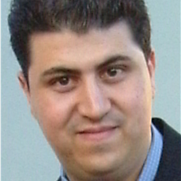
Mr Vincent Grima
Vincent Grima, male, Lecturer and Coordinator of Automotive Section, Institute of Engineering and Transport, Malta College of Arts, Science and Technology; VTTU, currently studying B.Sc (Hons) Plant Engineering. Currently the Coordinator of Automotive Section within the Institute of Engineering and Transport. Besides managing staff and coordinating courses within the automotive section, I teach students at both Level 3 and 4. I had worked within the automotive industry for more than 25 years at various capacities. Had also worked as a train the trainer for Saab ,Opel and Audi, satisfying the latter post for a period of 10 years.
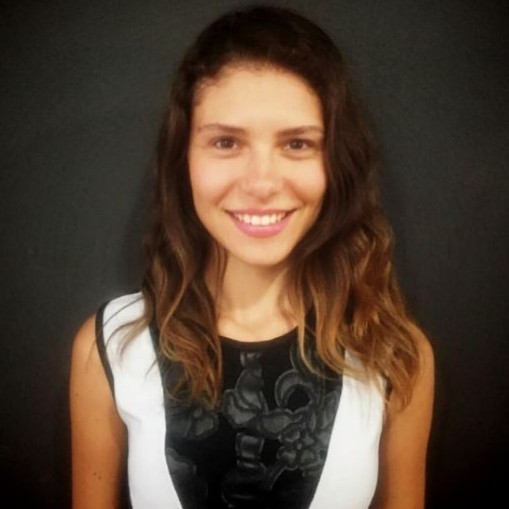
Pelin Uner
Pelin Uner currently works as EIT Hub Researcher at Applied Research and Innovation Center at MCAST, coordinating the projects that fall under EIT Climate-KIC and EIT Urban Mobility. Her field of study in the university was Business Administration BSc. Pelin Uner started her career journey in 2012 in Budapest, Hungary working on EU projects of social subjects. She later on moved to Athens, Greece and worked for global corporations. In 2016, she started working in Malta as Business Development Executive in a law office. Since April 2022, she continues her work mainly on sustainable urban mobility projects.
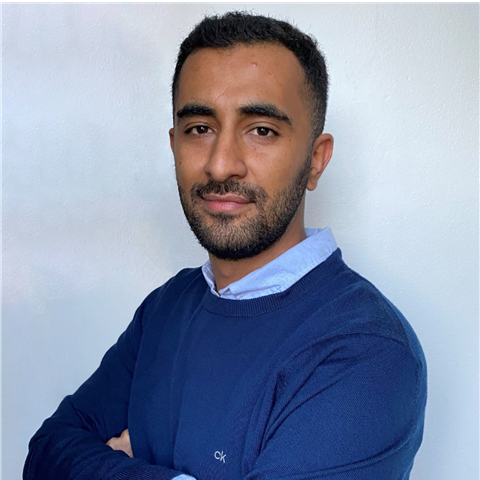
Qasem Saif
Qasem Saif is a Sustainability Consultant. Since 2021, he has been pursuing an MSc. in Smart Cities and Communities which he leveraged to build a comprehensive understanding of current ESG issues from experts in the field, big players in the European energy market, OMEs, and activists. His main areas of focus are Sustainable Urban Mobility, Carbon Accountancy, and European ESG Non-Financial Reporting. What’s more, he is currently working with MCAST and EIT Climate-KIC Malta Hub on MOBINNO project and Corporate Training, Shifting to EVs.
NOVEMBER 12 SATURDAY
13:00 – 14:00
Lunch
14:00 – 15:30
Corporate Case Studies
Enemalta PLC
Water Services Corporation
15:30 – 16:00
Refreshments
16:00 – 17:00
Keynote Lecture
Requirements and challenges for alternative drives in PT
Klara Maggauer
17:00 – 17:30
NEEMO School 3 Conclusions
IET Urban Mobility Hub Conclusions
Dr Inġ. Brian Azzopardi
NEEMO Coordinator
Ms Gonca Kara
NOVEMBER 12 SATURDAY
09:30 – 11:30
Electric Mobility Exhibition
Electric Mobility Trails & Tour
This session will be carried outside the venue. More details will be updated in due course. For any trial runs, please ensure that you have a valid driving license to drive in Malta.
